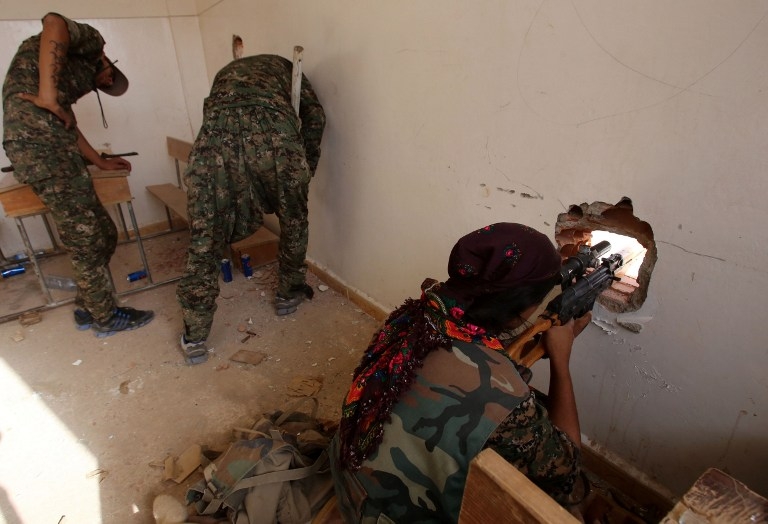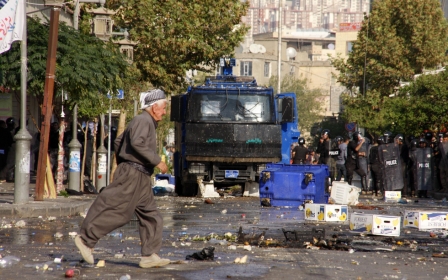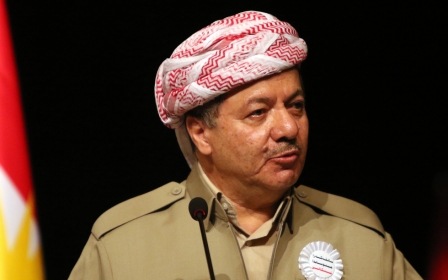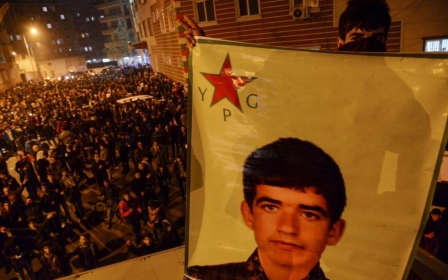Kurdish forces have committed 'war crimes' in Syria: Amnesty

Waves of forced displacement and home demolitions carried out by Kurdish forces operating in Syria's north and northeast amount to "war crimes," a rights group said on Tuesday.
Amnesty International said a fact-finding mission to 14 towns and villages in northern and northeast Syria "has uncovered a wave of forced displacement and home demolitions amounting to war crimes carried out by the autonomous administration" led by Syrian Kurds.
"By deliberately demolishing civilian homes, in some cases razing and burning entire villages, displacing their inhabitants with no justifiable military grounds, the autonomous administration is abusing its authority and brazenly flouting international humanitarian law," said Lama Fakih, Amnesty's senior crisis adviser.
After Syrian government troops withdrew from majority-Kurdish areas in 2012, a Kurdish-led autonomous administration stepped in to fill the void.
Its security forces, including the Kurdish People's Protection Units (YPG) and Asayish police, have fought Islamic State (IS) fighters in these areas.
But residents of Raqqa province in the north and Hasakeh in the northeast interviewed by Amnesty say Kurdish forces have used the pretext of fighting IS to conduct mass demolitions.
Amnesty said the destruction it examined had not occurred as a result of fighting, but was part of "a deliberate, coordinated campaign of collective punishment of civilians in villages previously captured by IS, or where a small minority were suspected of supporting the group".
The human rights group conducted 37 interviews and gathered testimonies of displaced people.
"They pulled us out of our homes and began burning the home ... they brought the bulldozers ... They demolished home after home until the entire village was destroyed," said one resident of the northeastern village of Husseiniya.
Amnesty said satellite images of Husseiniya showed that nearly 94 percent of the village had been destroyed between June 2014 and 2015.
In villages in Raqqa province, an IS stronghold, some residents told Amnesty that YPG fighters had accused them of supporting IS and threatened to shoot them if they did not leave.
Others said the YPG had threatened to call in airstrikes by the US-led coalition fighting IS if residents did not evacuate their homes.
"They told us we had to leave or they would tell the US coalition that we were terrorists and their planes would hit us and our families," said one resident, Safwan.
Syrian Kurdish forces have regularly responded to such accusations by calling the incidents "isolated," and saying short-term evacuations occur to keep civilians safe from nearby fighting.
"Very simply, this is a false allegation," said YPG spokesman Redur Xelil, according to Reuters.
But Amnesty said many areas where forced displacement had occurred were not near the front lines.
"The autonomous administration must immediately stop the unlawful demolition of civilian homes, compensate all civilians whose homes were unlawfully destroyed, cease unlawful forced displacements, and allow civilians to return and rebuild," Fakih said.
Amnesty also released a report in September saying that the administration was using the fight against IS as an excuse to "unlawfully detain and unfairly try peaceful critics and civilians believed to be sympathisers or members of alleged terror groups".
Middle East Eye propose une couverture et une analyse indépendantes et incomparables du Moyen-Orient, de l’Afrique du Nord et d’autres régions du monde. Pour en savoir plus sur la reprise de ce contenu et les frais qui s’appliquent, veuillez remplir ce formulaire [en anglais]. Pour en savoir plus sur MEE, cliquez ici [en anglais].




